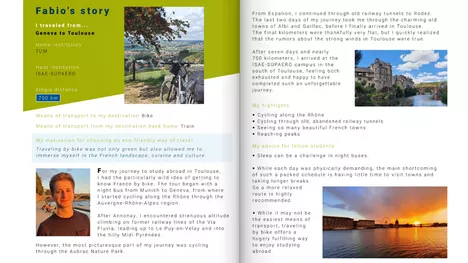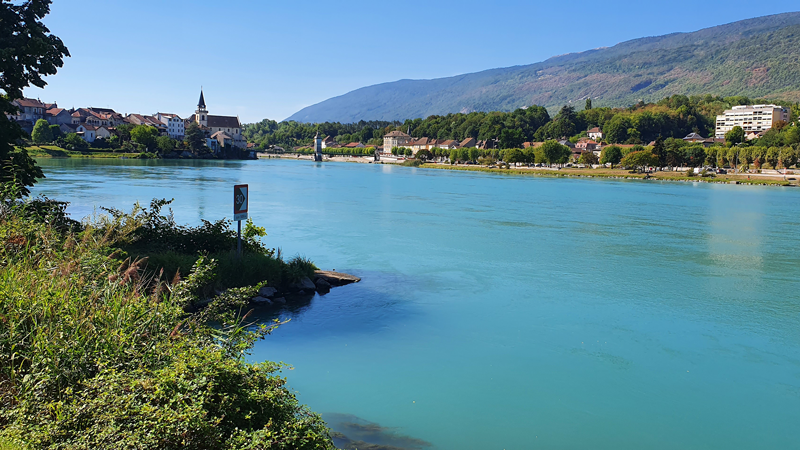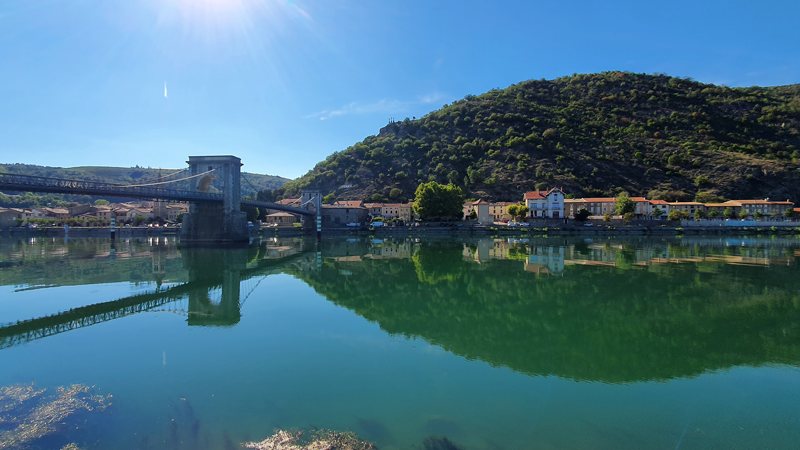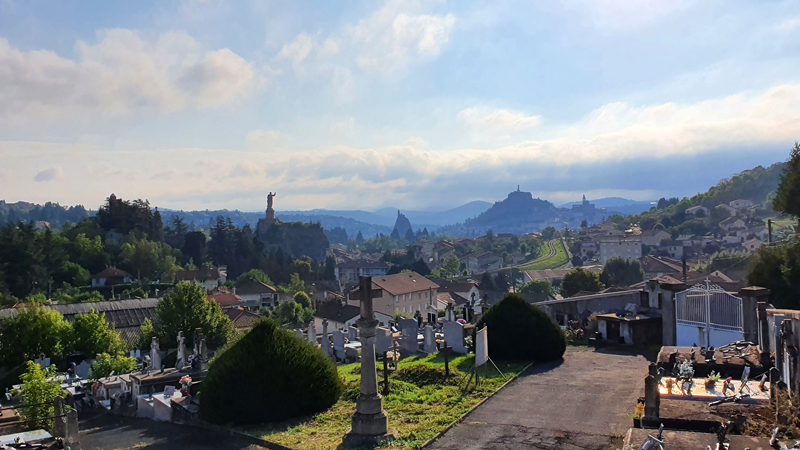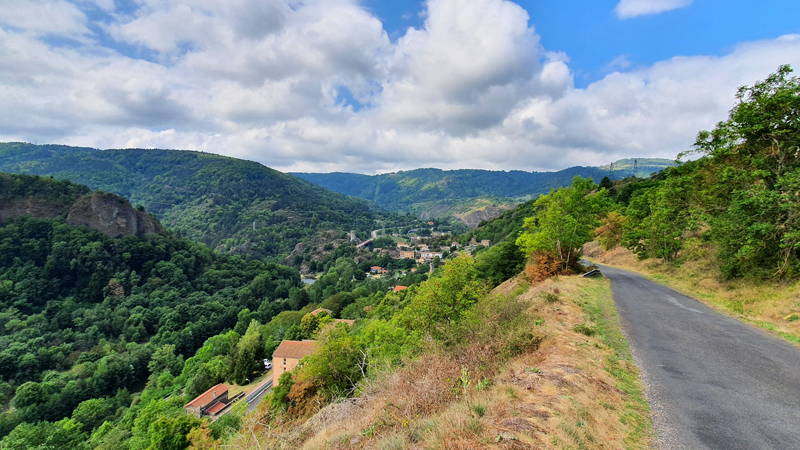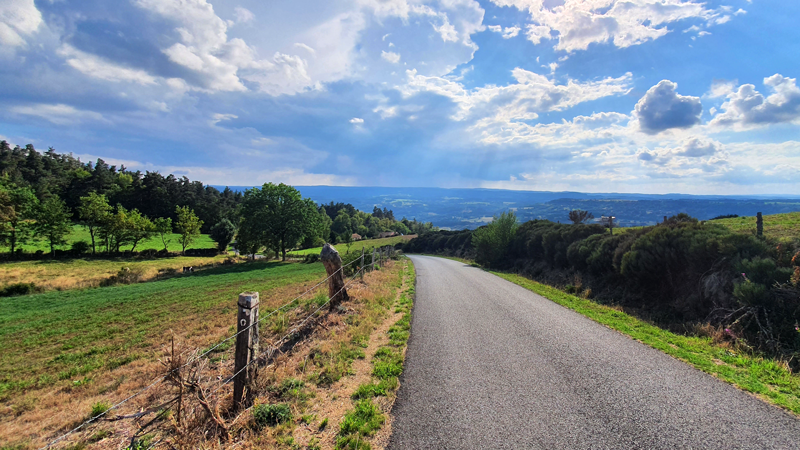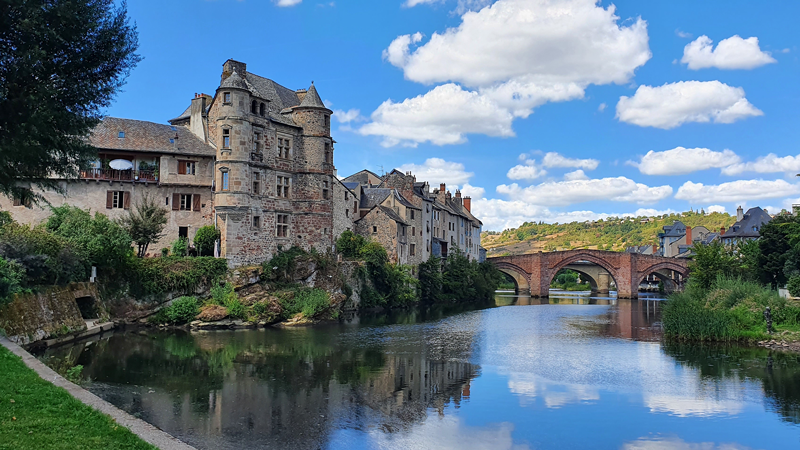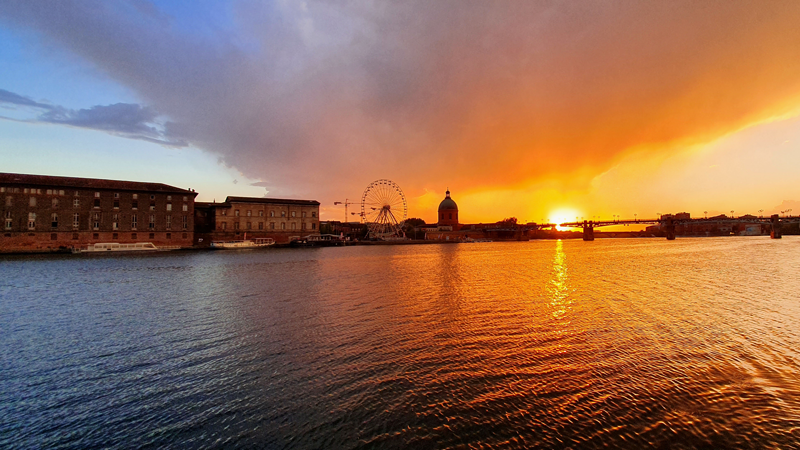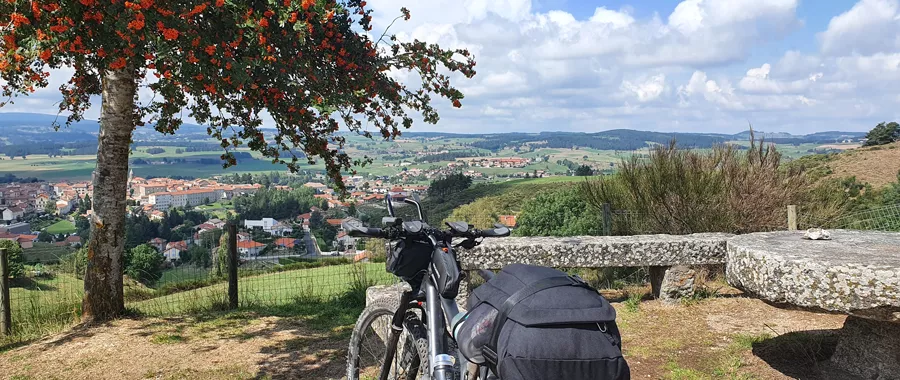
Fabio Witzgall is studying aerospace engineering at TUM. In the run-up to his semester abroad in Toulouse, he decided that he wanted to get to know the French landscape and culture better already during his journey. Therefore, he decided to travel by bike from Geneva. One week and 700 kilometers later, his Erasmus stay at the Institut Superieure de l'Aeronautique et de l'Espace (ISAE-SUPAERO) began. In this interview, he explains what led him to this decision, how the trip went, and what he would advise fellow students to do.
Fabio, going on your semester abroad by bike is an unusual idea. How did you come up with it?
First of all, I just really like cycling. It appealed to me to know what it's like to approach my Erasmus destination by bike in stages. The moment I reach my destination after a long bike ride is always a magical one for me. So I thought to myself: this is a good way to start my semester abroad in Toulouse!
To what extent did thinking about the environment play a role?
Sustainable living is generally very important to me. But it was more of an additional motivation to travel completely CO2-free, not the sole reason.
"Traveling by bike was not only green but also allowed me to
immerse myself in the French landscape, cuisine and culture."
What criteria did you use to plan the cycle route?
From Geneva, I had around 700 kilometers to cycle to Toulouse and a week to complete. So, I set myself an average of 100 kilometers per day, with the stages decreasing in length. I planned the route using the Bikemap app and partly using Google Maps during the tour. The route was mainly on paved country roads where there wasn't much traffic. With high pressure on the tires, I made good progress. But it was good that my tires were also suitable for gravel roads, which sometimes offered themselves as scenic alternatives.
And how did you get all your luggage to France?
On the day of my departure, I put together a 30-kilo package and sent it to Toulouse with DHL. Unfortunately, it didn't arrive in France until a few days after I did, so I spent the first few days sitting in my sports clothes in the lecture hall.
You could probably only take a minimal amount of luggage with you on the bike trip?
Yes, I only had a small bike bag and a rucksack while cycling. As I cycled in summer, ensuring I had enough water was essential. Especially after the Midi-Pyrénées, it was over 30 degrees. I had two water bottles with me, which I could refill again and again, and electrolyte tablets. My Blackroll ball was also important for massaging my tired legs after the long stages. And you should have plenty of sun protection with you – sun protection factor 30 wasn't enough in my case.
You must have seen and experienced a lot on your cycle tour. What were the best moments?
Oh, there were many. First of all, the encounters with other people. In a charming private accommodation in Saint-André-le-Gaz, my French host spontaneously invited me to a barbecue when I arrived in the evening, exhausted and hungry. During my cycling stages, I always found local fellow cyclists with whom I shared parts of the route and some of my impressions. This helped me to start speaking French, and the learning curve went steeply upward.
I was particularly impressed by the beauty of the landscape I was cycling through. There were always surprising new sceneries and impressions that I hadn't expected. So one morning, I started in the Massif Central in thick fog, cycled across cow pastures, and then worked my way through the clouds to the highest point of my trip at 1400 meters altitude. From there, I had an overwhelming view – and a magnificent descent to the historic town of Espalion.
"I met some local cyclists on the way and got to speak French right from the start. So the learning curve went steeply upwards."
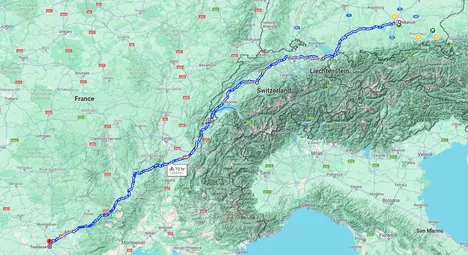
Were there any nasty surprises or moments that didn't go so well?
I found it difficult that many restaurants and bistros along the route were closed, probably due to the end of the season. Of course, I had emergency snacks such as muesli bars or almonds with me, but given the physical exertion, this is no real substitute for a proper meal.
It was also sometimes challenging to get my bearings once the path led me so steeply downhill that it was no longer rideable. Sometimes, I also had to cycle along busy roads, but you must accept that on such a long cycle tour. However, most of the routes and places I passed were really beautiful, and my biggest regret was that my tight schedule prevented me from staying longer in one place or another.
After seven days and 700 kilometers, you arrived in Toulouse on your bike. How did that feel?
I had cleverly divided the daily stages so that I only had shorter ones to tackle at the end. So I arrived in Toulouse in the early afternoon after a relaxed 70 kilometers. As a die-hard space fan, I really enjoyed the fact that the cycle route ran alongside the Cité de l'Espace, a huge exhibition park full of space technology, where there is also a model of the Ariane 5 rocket, about 32 meters high. That was an excellent way to arrive! After that, I checked into my room in the student residence and went to buy some bed linen.
Fabio, in retrospect, would you recommend other sporty students to cycle to their Erasmus destination?
Definitely! But I advise everyone to plan enough time for the trip. There should be at least one day for resting and sightseeing. Allowing enough time for the last day before departure would be best. I had an exam to write that day and had to pack, and that evening, I took the Flixbus to Geneva. That was a bit stressful.
And your special tip for anyone who wants to give it a go?
Take a massage ball with you and stretch regularly after cycling. And plan your time generously!
Thank you very much for the interview!

No matter whether you go abroad as a TUM student or want to come to TUM as an exchange student: Do it like Fabio and think about how you can make your stay as sustainable as possible. Find more information and tips on our website for climate-friendly mobility: Thinking green!
You can find the inspiring reports from Fabio and many other TUM students in our Thinking Green Travel Stories brochure.
